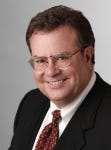Diary of a Fry Guy
John Lawn
It was when I turned 16 that my father began asking me if I'd thought about getting a summer job. My birthday is in January and it was the farthest thing from my mind.
At first, it was a casual query. By the summer, it was a "not something that's essential right now, but you ought to be thinking about it before next year." By the following spring, when I was 17, the idea had become a familial-psycho-social imperative.
When it came to a lot of things— schoolwork, making my bed, mowing the lawn—my mother was the driving force. But when it came to finding my first job, my father made it a crusade.
"All of your friends have jobs." (Most of them got jobs through their fathers' companies! )
By the end of the week, the startup guy was gone and I had a new job with a ten-cent an hour raise.
"It's important experience for you. If you don't start now, the good jobs will be taken by the summer." (Shrug of my shoulders).
"You may have noticed your allowance hasn't gone up since last year." (True, I was only getting $1.25 a week.)
"There's an ad in the paper for Sears down in Bridgeport. They're accepting applications on Saturday."
(It was April, and I actually did take the bus to Bridgeport that Saturday to fill out a job application. Standing in line, looking around at the hundreds of others applying, I saw it as a waste of time and was certain I wouldn't be called back. I was right.)
"If you don't get a summer job, you won't have any spending money for college." (This observation—or threat, depending on how you looked at it—actually got my attention. Life without an allowance? And how would $1.25 a week do in a strange city, 500 miles away?)
In May, after school let out, I began bicycling around town, dutifully looking for summer employment. As predicted, most available jobs were filled, and my lack of any formal work experience ruled out the rest.
I bicycled farther away, enjoying my early summer freedom, filling out an application or two every day. (That kept my father at bay in the evenings.) One day, I'd bicycled as far as Norwalk (we lived in Southport, about 6 miles away) and I stopped to fill out an application at a Carroll's restaurant on the Post Road.
When I turned it in, the manager looked down at the paper and then back at me. "When can you start?" he said.
I was taken aback. And before reality set in I said, "Is tomorrow ok?"
It turned out someone had just quit that afternoon. I learned I'd start at 95 cents an hour, then the minimum wage. It was a pretty impressive rate, compared to my allowance. I bicycled home on air, let the news slip at dinner, and began imagining how I would spend my sudden wealth.
The next morning, I biked down to Norwalk for a 10:00 AM orientation. Our family only had one reliable car in those days, so it never occurred to me that I'd do anything other than bike to Norwalk, or take the bus if it looked like rain.
Carroll's was an early East Coast fast food chain that tried to duplicate the McDonald's business model. It sold burgers for 15 cents, boasted of the "millions sold" on larger-than-life outside signage, and sold fries, milkshakes, fish sandwiches and a signature triple decker with a secret sauce.
In my first 45 minutes, I was introduced to every station, the crude POS registers of the day and the crew motto, "If you can lean, you can clean." By 11:00 AM, when the doors opened, I was deemed ready to bag portion-controlled servings of fries, ring up orders and mop the floors.
Three weeks later, when I showed up at 10:00 AM, I found the manager scrambling to get the store ready. The startup guy who normally came in at 7:00 hadn't shown up.
In a matter of minutes I was running the potato peeler, learning to filter the oil, sanitize and flush the shake machine, cut and blanch fries (this was before frozen fries were common) and do the morning cup inventory in the store room (that's how we kept track of how many drinks were sold each week. And if asked, no, we weren't allowed to give out extra cups).
Predictably, I was asked to come in at 7:00 AM the next day in case the startup guy abdicated again. By the end of the week, the startup guy was gone and I had a new job with a ten-cent an hour raise.
Such was my introduction to the fast-moving world of foodservice. I think of that summer every time I hear someone say such jobs are simply dead-end employment. It's a view that ignores the realities. Foodservice may or may not be the career you want, but if you work hard, there are opportunities every day. You just have to be willing to take advantage of them.
About the Author
You May Also Like




.jpg?width=300&auto=webp&quality=80&disable=upscale)

